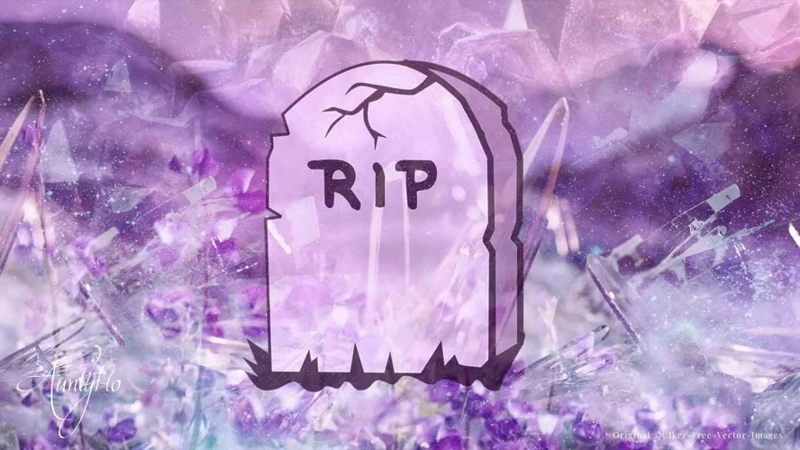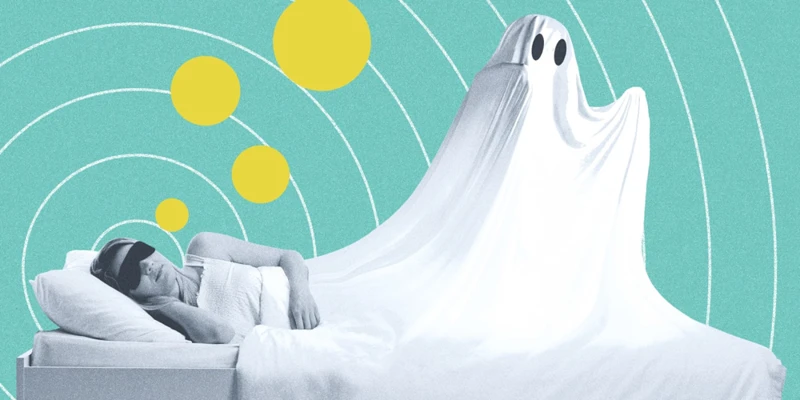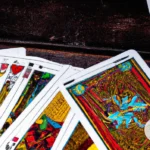Dreams have always been a topic of fascination and intrigue for humans throughout history. They serve as a window into our subconscious minds, often presenting us with vivid and sometimes perplexing imagery. One particularly enigmatic type of dream is the dream of the deceased. When we dream of someone who has passed away, it can evoke a mix of emotions and leave us wondering about the deeper meaning behind these dreams. In this article, we will explore the symbolism and significance of dreams of the deceased, delve into the common themes that arise, and examine the emotional impact they can have on us. Additionally, we will discuss various methods of interpreting and coping with these dreams, as well as the potential scientific and psychological explanations behind them. Join us on this journey as we unravel the mysteries of dreams and seek to understand the messages that may lie within the dream of the dead.
Understanding Dreams of the Deceased

When it comes to understanding dreams of the deceased, it is crucial to acknowledge their significance and explore the common themes that often arise. These dreams carry a profound emotional impact, as they can evoke a range of feelings such as grief, sadness, or even comfort. Examining the symbolism embedded within these dreams can provide valuable insights into our own subconscious minds. It is essential to analyze the personal connections and relationships we had with the deceased individual, as they can offer clues about the messages or unresolved issues being conveyed in the dream. Cultural and spiritual beliefs also play a role in interpreting these dreams, as they shape our perceptions of death and the afterlife. By embracing the healing and closure that dreams of the deceased can offer, seeking professional help and support, and engaging in ritualistic practices for grief, we can navigate the complex emotions that may arise from these dreams. Ultimately, dreams of the deceased provide an opportunity for communication, guidance, and reassurance from beyond, offering solace to those who have experienced the loss of a loved one.
1. Significance of Dreaming of the Deceased
Dreaming of the deceased holds great significance and can have a profound impact on individuals. These dreams often bring forth unresolved emotions and provide an avenue for healing and closure. The deceased person appearing in a dream can symbolize a variety of meanings, such as unfinished business, the need for forgiveness, or a desire for guidance. While each dream is unique to the individual, they can offer comfort and reassurance, allowing for a sense of connection with the departed loved one. Exploring the symbolism within these dreams can provide valuable insights into our own subconscious minds and help us process the grief associated with loss. Whether these dreams serve as a means of communication or are purely a reflection of our emotions, their significance cannot be denied.
2. Common Themes in Dreams of the Deceased
There are several common themes that frequently appear in dreams of the deceased, shedding light on their symbolism and meaning. These themes can range from comforting encounters to unresolved issues and messages from beyond. One prevalent theme is communication and interaction with the deceased individual, where they may offer guidance or reassurance. Another theme is symbolic encounters, where the deceased may appear in various forms or settings that hold personal significance. These encounters often provide a sense of closure or convey unfinished business that needs to be addressed. Additionally, dreams of the deceased may bring forth reassurance by allowing individuals to connect with their departed loved ones, providing comfort and a sense of ongoing presence. It’s important to remember that the interpretation of these themes may vary depending on individual experiences and beliefs, but exploring and understanding these common themes can offer insights into the messages and emotions behind dreams of the deceased.
3. Emotional Impact of Dreams of the Deceased
Dreams of the deceased can have a powerful emotional impact on individuals, often bringing forth a complex mix of feelings. These dreams can evoke a sense of grief and longing, as they serve as a reminder of the loss and the void left behind by the departed loved one. They can also bring comfort and solace, allowing individuals to feel a sense of reconnection and reassurance from beyond. Additionally, dreams of the deceased may stir up unresolved emotions, bringing forth feelings of guilt, regret, or even forgiveness. It is important to acknowledge the range of emotions that can arise from these dreams and to seek support and healing in coping with the emotional impact they may have. By exploring the symbolism and messages within these dreams, individuals can find comfort and closure in their grieving process.
Interpreting Dreams of the Deceased

Interpreting dreams of the deceased can be a deeply personal and introspective process, as it involves deciphering the symbolism and messages presented to us in these dreams. Analyzing the symbolism within the dream is a crucial step towards understanding its meaning. Symbols such as specific objects, locations, or interactions with the deceased can hold significant relevance. Additionally, examining our personal connections and relationships with the deceased individual allows us to uncover underlying emotions or unresolved issues that may be present in the dream. Cultural and spiritual beliefs also play a role in interpreting these dreams, as they can offer unique perspectives on the afterlife and the role of the deceased in our dreams. By considering these factors and seeking guidance from professionals or engaging in rituals and practices for grief, we can gain a deeper understanding of the messages being conveyed and find solace in the wisdom and guidance offered by our dreams of the deceased.
4. Analyzing Symbolism in Dreams of the Deceased
Analyzing the symbolism in dreams of the deceased is a crucial step in understanding their deeper meaning. By examining the various symbols present in these dreams, we can unravel the messages and emotions they convey. Symbolism can take many forms, such as objects, people, or even specific actions within the dream. For example, encountering a deceased loved one may symbolize unresolved emotions or the need for closure. Similarly, a place or setting in the dream may hold symbolic significance, representing a specific memory or shared experience. It is important to consider both the personal and cultural context surrounding these symbols, as they can vary in meaning from person to person. By delving into the symbolism of dreams of the deceased, we can gain a deeper understanding of ourselves, our relationships, and the messages our subconscious mind may be trying to communicate.
5. Examining Personal Connections and Relationships
When examining personal connections and relationships in dreams of the deceased, it is important to consider the depth and nature of the bond shared with the individual who has passed away. Analyzing the emotional dynamics and unresolved issues in the relationship can offer insight into the messages being conveyed through the dream. It is common for these dreams to bring up feelings of longing, guilt, or even forgiveness. By reflecting on the interactions and experiences had with the deceased person in the dream, we can gain a deeper understanding of the significance and symbolism behind their presence. This analysis can help us address any unfinished business or seek closure in our waking lives. In some cases, dreams of the deceased can provide a sense of comfort, reminding us of the love and connection that transcends death. By allowing ourselves to explore these personal connections and relationships in the dream realm, we can navigate the path towards healing and emotional resolution.
6. Considering Cultural and Spiritual Beliefs
Cultural and spiritual beliefs play a significant role in interpreting dreams of the deceased. Different cultures and religions have their unique perspectives on death and the afterlife, which can shape the symbolism attributed to these dreams. For example, in some cultures, dreaming of deceased ancestors is seen as a sign of their continued presence and guidance in one’s life. Others may view such dreams as opportunities for spiritual communication or messages from the beyond. Exploring cultural and spiritual beliefs can offer valuable insights into the meaning and significance attached to dreams of the deceased, allowing individuals to interpret these dreams within the context of their own belief systems. By considering these cultural and spiritual aspects, we can gain a better understanding of the broader implications and messages behind these unique and often perplexing dreams.
Coping with Dreams of the Deceased

Coping with dreams of the deceased can be a challenging and emotional process, but there are various strategies that can help individuals navigate these experiences. Embracing healing and closure is an essential step towards finding peace and understanding the messages that may lie within these dreams. Seeking professional help and support is another valuable avenue, as therapists or counselors can provide guidance and assist in processing the complex emotions that arise from these dreams. Engaging in rituals and practices for grief, such as creating a memorial or participating in activities that honor the memory of the deceased, can also provide comfort and facilitate healing. It is important to remember that dreams of the deceased are personal and unique to each individual, and the interpretation and coping mechanisms may differ from one person to another. By acknowledging the significance of these dreams and finding healthy ways to cope with them, individuals can find solace and create a space for healing and understanding.
7. Embracing Healing and Closure
Embracing healing and closure is a crucial aspect when it comes to dreams of the deceased. By acknowledging and processing the emotions that arise from these dreams, we can begin the journey towards healing. It is important to create a safe space for ourselves to express our feelings and reflect on the messages received in the dream. Seeking support from loved ones or even professional help can provide guidance and comfort during this process. Engaging in rituals and practices for grief, such as memorial ceremonies or writing letters to the deceased, can also aid in finding closure. Remember, everyone’s healing process is unique, so it is essential to be patient and compassionate with ourselves as we navigate the complexities of these dreams and the grieving process.
8. Seeking Professional Help and Support
Seeking professional help and support is crucial when it comes to navigating the complex emotions and meanings behind dreams of the deceased. Consulting with a therapist or counselor who specializes in grief and dream analysis can provide valuable insight and guidance. They can assist in interpreting the symbolism and messages within these dreams, helping individuals process their emotions and find healing. Additionally, support groups or online communities focused on grief and dream exploration can offer a sense of belonging and understanding. It is important to remember that professionals can provide tools and techniques for coping with the emotional impact of these dreams, while also addressing any unresolved issues or trauma that may surface. Seeking help is a proactive step towards finding solace and understanding in the realm of dreams of the deceased.
9. Engaging in Rituals and Practices for Grief
Engaging in rituals and practices for grief can be a powerful way to cope with dreams of the deceased. These rituals vary across cultures and belief systems, but they often involve honoring and remembering the departed loved one. Rituals such as lighting candles, creating altars, or visiting their gravesite can provide a sense of connection and comfort. Practices like journaling about the dreams, meditating, or seeking support from a grief counselor can also help process the emotions associated with these dreams. These rituals and practices serve as a way to honor the memory of the deceased, find healing, and find a sense of closure. By engaging in these activities, individuals can find solace and continue on their path of healing and recovery. If you are curious about exploring more about dreams and their interpretation, you can also find guidance here.
Interactions with the Deceased in Dreams

Interactions with the deceased in dreams open up a realm where communication transcends the boundaries of the physical world. These encounters can take on various forms, providing a source of communication and messages from the departed. It is not uncommon for individuals to receive guidance and reassurance through these interactions, as if the loved one is offering support from beyond. These symbolic encounters hold a profound significance, allowing us to revisit unresolved issues or find closure. Whether it’s through a heartfelt conversation, a shared experience,
Subscribe to Our Newsletter
Sign up to receive the latest news and updates.
10. Communication and Messages from the Deceased
Communication and messages from the deceased in dreams can be a powerful and transformative experience. They offer a unique opportunity for individuals to connect with their loved ones who have passed away. Whether it is through spoken words, gestures, or symbolic imagery, these dreams can carry profound meaning and provide comfort to the dreamer. In some instances, the deceased may provide guidance or offer reassurance about unresolved issues. It is important to approach these dreams with an open mind and heart, allowing the messages to be received with clarity and understanding. It is also advisable to keep a dream journal and document these interactions, as they may reveal patterns or recurring themes over time.
11. Symbolic Encounters and Guidance
Symbolic encounters and guidance in dreams of the deceased can be profound and impactful. These dreams often present us with powerful symbols and messages that can provide guidance and comfort during times of grief. Symbolic encounters may take the form of interactions with the deceased, such as conversations or shared experiences. These encounters can offer a sense of connection and closure, allowing us to communicate with our loved ones who have passed on. Additionally, these dreams may provide guidance in navigating challenges or making important decisions. The symbols and messages we encounter in these dreams can serve as a source of insight and wisdom, offering comfort and reassurance as we continue on our journey.
12. Reassurance and Unresolved Issues
Dreams of the deceased often provide a sense of reassurance and can help address unresolved issues. In these dreams, the deceased may offer comfort, forgiveness, or closure, helping to alleviate any lingering guilt or regret. It is not uncommon for individuals to use these dreams as an opportunity to seek forgiveness, express love, or resolve conflicts that were left unaddressed in waking life. The symbolic interactions in these dreams can provide a sense of closure and peace, allowing individuals to find solace and move forward in their grief journey. By exploring the messages and encounters within these dreams, one can find reassurance that their loved one is at peace and that their bond continues even in the realm of dreams.
Scientific and Psychological Explanations
When attempting to understand dreams of the deceased from a scientific and psychological standpoint, it is important to consider several factors. Dreams can be seen as a reflection of the subconscious mind, where unresolved emotions and thoughts manifest during sleep. They serve as a way for us to process grief and cope with loss, acting as coping mechanisms. Additionally, neurological factors contribute to these dreams, as brain activity during sleep can trigger memories and associations related to the deceased individual. Psychological explanations suggest that dreams of the deceased allow us to maintain a connection with loved ones who have passed away, providing the opportunity for symbolic encounters and reassurance. While the scientific and psychological explanations cannot fully capture the depth and complexity of these dreams, they offer valuable insights into the role they play in our grieving process and subconscious mind.
13. Dreams as a Reflection of the Subconscious Mind
Dreams have long been regarded as a reflection of the subconscious mind, serving as a portal into our deepest thoughts, emotions, and desires. They offer glimpses into our innermost fears, hopes, and unresolved issues, which may include dreaming of the deceased. Reflecting the workings of our subconscious mind, these dreams can shed light on emotions that may be buried or unacknowledged in our waking lives. They provide a platform for the mind to process and make sense of complex emotions, including grief and loss. Studies suggest that dreams function as a form of emotional regulation, allowing us to cope with difficult experiences and integrate them into our conscious awareness. By exploring the symbolism and themes present in dreams of the deceased, we can gain insights into our own psyche and enhance our understanding of ourselves on a deeper level.
14. Coping Mechanisms and Processing Grief
Coping mechanisms and processing grief are essential aspects of navigating dreams of the deceased. These dreams can stir up intense emotions and bring forth unresolved feelings of loss and sadness. Developing healthy coping mechanisms is crucial in order to effectively process grief and find healing. This can be achieved through activities such as journaling, talking to a therapist or support group, and engaging in self-care practices. It is important to recognize that everyone grieves differently, and what works for one person may not work for another. Finding personalized coping strategies that resonate with your own healing journey can provide comfort and a sense of empowerment. It is also vital to allow yourself time and space to grieve and to honor the memory of the deceased. Through these coping mechanisms, processing grief can become a transformative and healing experience.
15. Neurological Factors and Dreaming of the Deceased
Neurological factors play a significant role in the phenomenon of dreaming of the deceased. In these dreams, the brain’s intricate neural networks and processes are at work, shaping our perceptions and experiences. Brain activity during REM sleep (rapid eye movement sleep) is particularly relevant, as this is the stage where most dreaming occurs. During this phase, the brain undergoes various chemical and electrical changes that contribute to the creation of dream imagery. Additionally, studies have shown that the hippocampus and amygdala, which are involved in memory and emotions, respectively, are highly active during dreaming. This heightened activity may explain why dreams of the deceased often evoke intense emotional responses. Moreover, neurotransmitters such as serotonin, dopamine, and norepinephrine are also thought to influence dream content and emotional intensity. While much more research is needed to fully understand the intricate neurological factors at play, it is clear that the brain and its complex processes contribute to the experience of dreaming, including dreams of the deceased.
Conclusion
In conclusion, dreams of the deceased hold a profound significance, offering a glimpse into our subconscious minds and providing a platform for emotional healing and closure. The symbolism and messages conveyed in these dreams are deeply personal and can be interpreted through analyzing personal connections and relationships, considering cultural and spiritual beliefs, and embracing rituals for grief. Coping with dreams of the deceased involves acknowledging the emotional impact they have, seeking professional support when needed, and engaging in practices that facilitate the grieving process. Whether these dreams serve as a means of communication, guidance, or resolving unresolved issues, they offer solace and reassurance to those who have experienced the loss of a loved one. While scientific and psychological explanations provide some insight, the true nature and purpose of dreams of the deceased remain a beautiful mystery that continues to captivate our imagination and ignite our curiosity.
Frequently Asked Questions
1. What does it mean when you dream of a deceased loved one?
When you dream of a deceased loved one, it can symbolize various meanings. It could indicate that you are longing for their presence or unresolved emotions related to their passing. It could also be a way for your subconscious mind to process grief or offer closure.
2. Are dreams of the deceased common?
Yes, dreams of the deceased are relatively common. Many people report having such dreams at some point in their lives. These dreams can occur regardless of the length of time since the person’s passing.
3. Can dreams of the deceased be disturbing or frightening?
Yes, dreams of the deceased can sometimes be disturbing or frightening. This can be due to the intense emotions associated with loss or unresolved feelings. However, it’s important to remember that these dreams are a product of your subconscious mind and not necessarily indicative of anything ominous.
4. Can dreams of the deceased be interpreted as messages from beyond?
Some individuals interpret dreams of the deceased as messages from beyond. While there is no scientific evidence to support this claim, some people find solace in believing that their loved ones are reaching out to them in the dream realm.
5. Is there a cultural influence on how dreams of the deceased are interpreted?
Yes, cultural beliefs and traditions play a significant role in how dreams of the deceased are interpreted. Different cultures may have specific interpretations and rituals surrounding these dreams, influenced by their beliefs about death, the afterlife, and the nature of the soul.
6. Can dreams of the deceased help with the grieving process?
Yes, dreams of the deceased can play a role in the grieving process. They can offer comfort, closure, and even a sense of continued connection with the departed loved one. However, it’s essential to also seek support and engage in other healing practices alongside these dreams.
7. Should I share my dreams of the deceased with others?
Sharing your dreams of the deceased with others can be a personal decision. Some individuals find solace and validation by discussing their dreams with friends, family, or support groups who have also experienced loss. However, if sharing doesn’t feel right for you, it’s okay to keep these dreams private.
8. Can dreams of the deceased be therapeutic?
Dreams of the deceased can be therapeutic for some individuals. They can provide a space for emotional release, reflection, and processing of grief. However, it’s essential to differentiate between the therapeutic aspect of dreams and the need for professional help when necessary.
9. Why do dreams of the deceased feel so real?
Dreams of the deceased can feel exceptionally real due to the emotional weight attached to the person who has passed away. The connections we form with loved ones are strong, and dreams provide a heightened state of awareness where vivid imagery and emotions can be experienced.
10. Should I be worried if I haven’t had a dream of a deceased loved one?
No, it is entirely normal if you haven’t had a dream of a deceased loved one. Dreams are highly personal and subjective experiences, and not everyone will have this type of dream. The grieving process and healing can take different forms for each individual, and dreams are just one aspect of it.










